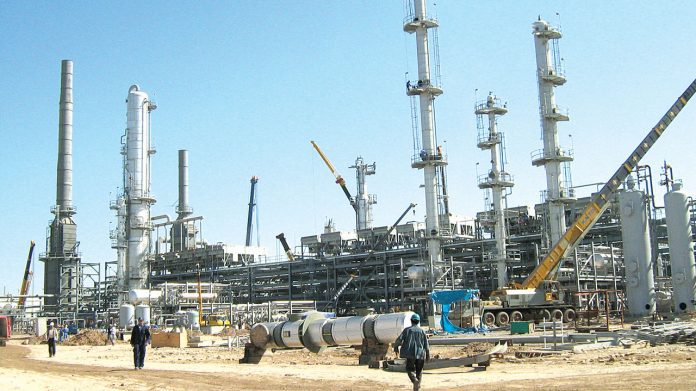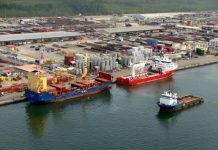Obu ihe ojo mmadu ihapu ara nneya wee nua akpu (it’s an abomination for a child to suck the boil on its mother’s chest instead of its mother’s breast) is a popular saying among people from the South Eastern part of Nigeria. People standing in the middle of an ocean and washing their hands with saliva (O bu aru mmadu ino n’etiti oshimiri wee jiri asu kwuo aka) is an abomination (aru).
The two axioms are examples of Nigerians’ negative experiences with petrol, a by-product of crude oil with which God has blessed the country abundantly. After agriculture, which had “breastfed” the country, was abandoned, crude oil became the beginning and end of all socio-economic activities. Nigerians will occasionally be engulfed in one of several petrol-related squabbles.
Most of the time, fuel scarcity will keep us on our toes. When this occurs, Nigeria’s poor will suffer excruciatingly as the cost of food skyrockets. Because everything in Nigeria is fuel-dependent, including, arguably, making one’s wife pregnant, this is the case.
As the late Professor Chinualumogu Achebe put it, if a man can’t tell where the rain started beating (drenching) him, he won’t be able to tell where it stopped. When the four refineries in Nigeria stopped operating as a result of criminal neglect by successive administrations, Nigeria and Nigerians began to experience problems related to the oil and gas sector.
When the federal government refused to address the issue of oil pollution, which resulted in environmental degradation, things came to a head. Those from the region, particularly their youths, began to agitate, and every time the government promised them a better life, the youth could no longer take it and began breaking down the pipelines to find out what the government had hidden.
Some of them, with little technical know-how, built illegal refineries that the government continued to destroy without considering that they could have been legalized by issuing licenses to some operators, converting them to government property, and improving them for crude oil refining since our refineries were consigned to the trash can of history.
However, as religious gatekeepers would say, there appears to be a season for everything, and there appears to be a season to end Nigeria’s crippling fuel and gas wahala. President Muhammadu Buhari has promised to fix the country’s oil and gas sector, so that time may have come. To back up his words, he appointed Chief Timipreye Sylva as Minister of State for Petroleum Resources to work alongside him to move the sector forward.
Read also: Buhari congratulates Babangida on his 80th birthday
Nigerians have noticed a significant difference since the duo took over the sector. They have developed several methods to make things work in order to fix the sector. Unlike previous administrations, the APC administration has been quick to support efforts to build modular refineries to increase the country’s refining capacity.
President Buhari announced in 2016 a roadmap of short and medium-term priorities aimed at developing a stable and enabling oil and gas landscape with improved transparency, efficiency, a stable investment climate, and a well-protected environment, dubbed “7big wins,” as part of his strategy to reposition the oil and gas industry. The roadmap’s fourth initiative, “Refineries and local production capacity,” aims to transform Nigeria from an importer to a net exporter of refined petroleum products by using modular refineries as a vehicle.
This is seen as one of the options for dealing with the lack of petroleum products. This was demonstrated on January 21, when President Buhari presided over the virtual inauguration of the National Oil and Gas Excellence Centre. Modular refinery was one of the topics he discussed. He mentioned the opening of the Waltersmith Modular Refinery in Imo State, which has a capacity of 5,000 barrels per day and is the world’s largest modular refinery.
After receiving a license from the Department of Petroleum Resources (DPR) in June 2015, phase one of the refinery began operations in November of last year. The country is set to begin a phase of reduced petroleum imports following the expansion of the refinery to 50,000bpd capacity in November last year. Because the refinery’s crude oil storage capacity is approximately 60,000 barrels, the refinery is expected to deliver 271 million litres of refined petroleum products per year.
There are signs that the project will be a success, with President Buhari instructing DPR and the Nigerian National Petroleum Corporation, NNPC, to provide all necessary support in securing oil and condensate feedstock for the second phase. Although Edo is not Imo, what is going on in Imo with the modular refinery is also going on in Edo, as the Edo Modular Energy refinery is set to increase crude oil production from 6,000 to 60,000 barrels per day (bpd).
The project will improve Nigeria’s fuel security and alleviate Nigerians’ suffering in every way. According to projections, some of its products will be exported to boost foreign exchange earnings, and the company will be able to meet more than 80% of Nigeria’s diesel demand by the time it expands operations into different phases.
The investment will also benefit Edo residents by creating jobs, increasing revenue, and relieving pressure on other refineries. Another modular refinery, the Atlantic Modular Refinery on Brass Island, Bayelsa State, will begin operations before the end of the year if Sylva’s commitment to making life easier for Nigerians does not wane. Sylva, based on his pedigree, is unlikely to fail if he keeps his word, as his name is quickly changing to Ekwueme (doing what he says).
If Chief Sylva’s intentions with the modular refinery initiative are to increase the availability of petroleum products in the country, conserve foreign exchange for petroleum product importation, promote socio-economic development to reduce restiveness, criminal and illegal refinery activities, and maintain peaceful coexistence in the Niger Delta,
Despite the fact that there are differing opinions on the economic viability of modular refineries, Chief Sylva should not be distracted by these tenuous arguments because there is evidence that the industry’s average net profit margin was 6.8% in January of last year, according to data from NYU Stern School of Business.
Read also: Increasing the availability of domestic resources
Chief Sylva should not be deterred by any insignificant setback to the sector caused by shale oil competition, excess supply, generous financial markets, or the coronavirus pandemic, which harmed the sector’s net profit margins. Is there a silver lining to Sylva’s plans for the industry that supports arguments for modular refineries?
Nigeria has insufficient refining capacity and meets all of the criteria, creating an opportunity for modular refineries, which are simple to set up, quick to start up, and typically operate at full capacity. This is, in theory, a competitive advantage over larger refineries. It can also start with a small capacity of 5,000 or 10,000 BPSD and gradually increase capacity by adding more modules.
Huge investment opportunities in the mid-downstream sector, which will result in GDP growth and job creation, are just a few of the many advantages of the modular refinery initiative. The government’s support for the establishment of third-party-financed Greenfield and modular refineries for in-country petroleum product sufficiency, which will stimulate product export, is one of the most important aspects of this initiative.
To make this a possibility, the refineries will be scalable and located within refinery clusters for efficient operations and low environmental impact. The government has devised an excellent strategy. As Minister of State for Petroleum Resources, Chief Sylva has a date with history in terms of freeing Nigerians from the shackles of perpetual fuel scarcity and coldblooded petroleum product importers who rob the country of billions of Naira in the form of petrol subsidies.
Chief Sylva must inscribe his name in the minds of Nigerians. Now, in the era of modular refineries, is the perfect time to do so. If he succeeds, he will be known as the Beast Slayer. Nigerians would have reason to sing that Chief Sylva has accomplished what no one else has, much like the Israelites sang for David when he killed Goliath on their own flesh.
Join Television Nigerian Whatsapp Now
Join Television Nigerian Facebook Now
Join Television Nigerian Twitter Now
Join Television Nigerian YouTUbe Now





